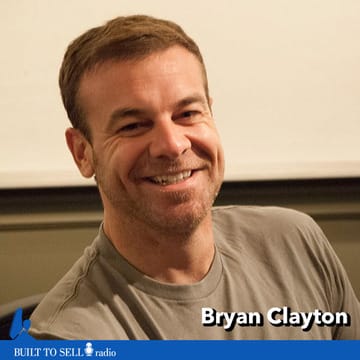About this episode
Nashville-based Bryan Clayton was running Peachtree, a landscaping business, when the financial crisis of 2008 hit hard. Customers stopped spending money overnight. Clayton gathered his employees together and told them the world had changed and asked each to re-commit to the company. Clayton told them that the road ahead would be challenging, but he would do everything in his power not to cut staff.
To read a transcript of this episode, click here.
Nashville-based Bryan Clayton was running Peachtree, a landscaping business, when the financial crisis of 2008 hit hard. Customers stopped spending money overnight. Clayton gathered his employees together and told them the world had changed and asked each to re-commit to the company. Clayton told them that the road ahead would be challenging, but he would do everything in his power not to cut staff.
While many of his competitors went out of business, Clayton survived the 2008 financial crisis. He went on to build Peachtree into a 150-employee company which he sold to Lusa Holdings in 2013 for a seven-figure windfall.
There are some critical lessons in this episode for the aspiring value builder including:
Sell the benefit. Clayton was in the commoditized business of cutting grass, but when he approached commercial clients, he focused on what made their business model work. One of his first commercial contracts was with a McDonald’s franchisor who owned 40 stores. Clayton won the assignment by offering to clean the cigarette butts from the drive-through — a pain point no other landscaper offered to solve.
Get ready early. Asked what he would do differently, Clayton said he would invest a year getting the business prepared to sell.
You’ll learn a ton through Clayton’s attendance at the school of hard knocks, including:
- Three ways to navigate a financial crisis
- Why your assets may be worth less than you thought
- Why you need to separate salespeople who hunt from those who farm
- How to find self-motivated salespeople
- Definitions for the alphabet soup that is M&A parlance including GAAP, IOI and LOI
- How to avoid getting re-traded
- The single most crucial negotiation trick Clayton wished he had known before selling
Getting through a financial crisis is a daunting prospect, and we’re here to help. Our community of Certified Value Builders are some of the most experienced advisors in the world. Most have run a business through the 2008/9 recession and can help you navigate the road ahead. If you’d like to set up a one-on-one discussion with a Certified Value Builder™ who has fought through some of the most challenging times in history, complete this form.
Check out our article on How To Get Your Employees To Care About Your Business.

About Our Guest
Bryan Clayton is cofounder and CEO of GreenPal, described as Uber for lawn mowing, GreenPal matches homeowners with local lawn mowing services throughout the United States. You can find out more by clicking on Bryan’s headshot.
Before founding GreenPal. Bryan founded PeachTee Inc. a regional landscaping company in Nashville Tennessee growing that business from 0 to 150 employees and ultimately acquired by Lusa holdings in 2013.
In his free time Bryan enjoys hiking , martial arts, long-distance running, and volunteering with Achillies international a group assisting in the training of disabled athletes for competitive events.


